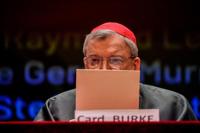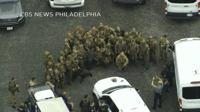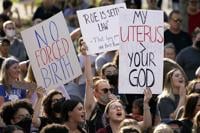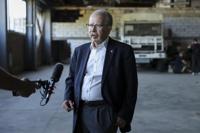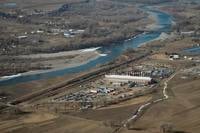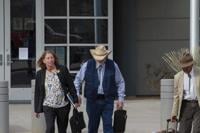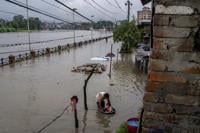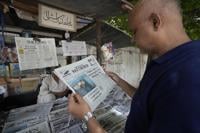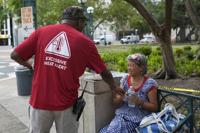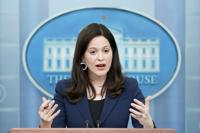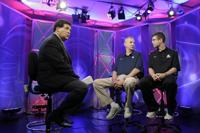VATICAN CITY (AP) — Pope Francis has decided to punish one of his highest-ranking critics, Cardinal Raymond Burke, by revoking his right to a subsidized Vatican apartment and salary in the second such radical action against a conservative American prelate this month, according to two people briefed on the measures.
Francis told a meeting of the heads of Vatican offices last week that he was moving against Burke because he was a source of “disunity” in the church, said one of the participants at the Nov. 20 meeting. The participant spoke on condition of anonymity because he was not authorized to reveal the contents of the encounter.
Francis said he was removing Burke’s privileges of having a subsidized Vatican apartment and salary as a retired cardinal because he was using the privileges against the church, said another person who was subsequently briefed on the pope’s measures. That person also spoke on condition of anonymity because he wasn't authorized to reveal the details.
Burke has not received any notification of measures being taken, his secretary said in a text message Tuesday to The Associated Press.
Burke, a 75-year-old canon lawyer whom Francis had fired as the Vatican's high court justice in 2014, has become one of the most outspoken critics of the pope, and his reform project to make the church more responsive to the needs of ordinary faithful.
Twice, Burke has joined other conservative cardinals in issuing formal questions to the pontiff, known as “dubia,” asking him to clarify questions of doctrine that upset conservatives and traditionalists. In the first, they asked Francis to clarify his outreach to divorced and civilly remarried Catholics, and Francis never replied. In the second, they asked whether same-sex couples could receive church blessings — and received a conditional maybe in response.
Then, on the eve of Francis’ big meeting of bishops last month, known as a synod, Burke presided over a counter-synod of sorts just steps away from St. Peter’s Square. There, Burke delivered a stinging rebuke of Francis’ vision of “synodality” as well as his overall reform project for the church.
“It’s unfortunately very clear that the invocation of the Holy Spirit by some has the aim of bringing forward an agenda that is more political and human than ecclesial and divine,” Burke told the conference titled
Burke has always defended his actions as being of service to the church and the papacy, saying it was his obligation as a cardinal and bishop to uphold church teaching and correct errors.
“The sheep depend on the courage of pastors who must protect them from the poison of confusion, error and division,” he told the Oct. 3 conference, prompting applause from the crowd.
Burke, who spends much of his time in the U.S. at the Our Lady of Guadalupe shrine he founded in his native Wisconsin, is the second American prelate to face punishment in what appears to be a new phase of Francis' pontificate. This reform-minded period seems to have accelerated with the arrival in September of Francis' hand-picked new doctrine czar, Argentine Cardinal Victor Fernández.
Earlier this month, Francis forcibly removed the bishop of Tyler, Texas, Joseph Strickland, another conservative who had also become one of Francis' critics. Strickland was removed after a Vatican investigation into governance of his diocese.
In a tweet Tuesday, Strickland expressed shock at reports that Francis had taken action taken against his fellow American, which was first reported by the conservative Italian newspaper La Nuova Bussola Quotidiana, the main sponsor of “The Synodal Babel” conference.
“If this is accurate it is an atrocity that must be opposed. If it is false information it needs to be corrected immediately,” Strickland said.
Asked Tuesday about word of Francis' decision, Vatican spokesman Matteo Bruni didn't deny the reports but referred questions to Burke.
“I don’t have anything particular to say about that,” Bruni told reporters.
Pope Benedict XVI had made Burke a cardinal in 2010, after he appointed him prefect of the Apostolic Signatura, the Vatican's high court. After Francis removed him from that position in 2014, he made Burke the cardinal patron of the Knights of Malta, a prestigious but limited role.
But there too, Burke and Francis clashed over Burke's involvement in a governance crisis at the chivalric order. Francis pushed him aside and named two subsequent envoys to essentially replace him.
More recently, the two seemingly were at odds over COVID-19 vaccines. Francis had been a big proponent of the vaccines and had , who included some conservative Catholics.
During a 2021 airborne news conference, Francis lamented the vaccine “negationists” in the College of Cardinals, an apparent reference to Burke, who had just been hospitalized in the U.S. and placed on a ventilator with a serious bout of the virus.


